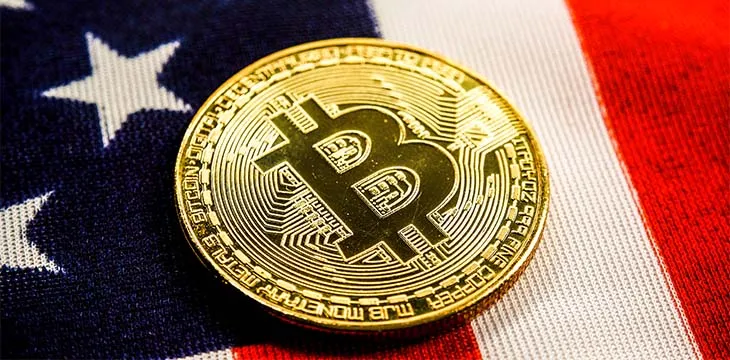|
Getting your Trinity Audio player ready...
|
The Department of Justice (DoJ) has gotten a go-ahead to launch its first criminal lawsuit involving the use of digital currency to evade economic sanctions. U.S. Magistrate Judge Zia M. Faruqui of Washington, D.C., gave the directive after explaining how U.S. laws apply.
The Justice department’s complaint involves a U.S. citizen accused of transmitting more than $10 million worth of BTC to a digital currency exchange in a country under sanctions from the United States.
In a nine-page opinion document, the federal judge stated that his directive adopted guidance issued in October by the Treasury’s Office of Foreign Assets Control (OFAC). OFAC stated that sanctions regulations apply to transactions involving digital currencies in addition to the U.S. dollar or other traditional fiat currencies.
The defendant, whose name is redacted, allegedly boasted that his/her payment platform could be used to evade U.S. sanctions on the country anonymously.
“In the instant complaint, the government alleged that Defendant conspired to violate the International Emergency Economic Powers Act (IEEPA) and defraud the United States,” the document said.
The payment platform was set up to use several front companies to purchase IP addresses and establish itself. However, the DOJ’s investigation uncovered the defendant’s identity through KYC provided on a U.S.-based centralized digital currency exchange that was used in facilitating illicit transactions.
The name of the country involved in the case is also redacted, but could he be one of Cuba, Iran, North Korea, Syria, or Russia. Judge Faruqui concluded by debunking two misconceptions about digital currencies.
“Issue One: virtual currency is untraceable? WRONG … Issue Two: sanctions do not apply to virtual currency? WRONG,” he wrote.
U.S. records increasing success in illicit digital currency usage crackdown
The opinion is coming when the U.S. agencies have been becoming more prolific in tracking down illicit activities involving digital currencies. One such agency is the OFAC which has been expanding its list of sanctioned individuals to include more digital currency entities.
The DOJ also recorded its biggest digital asset confiscation this year, the recovery of Bitcoin worth around $3.6 billion that was previously stolen from Bitfinex. Two suspects were also accused of attempting to launder the assets.
According to the Washington Post, the landmark case will set substantial precedence for other similar digital currency cases.
Watch: CoinGeek New York panel, Investigating Criminal Activity on the Blockchain

 07-05-2025
07-05-2025 





